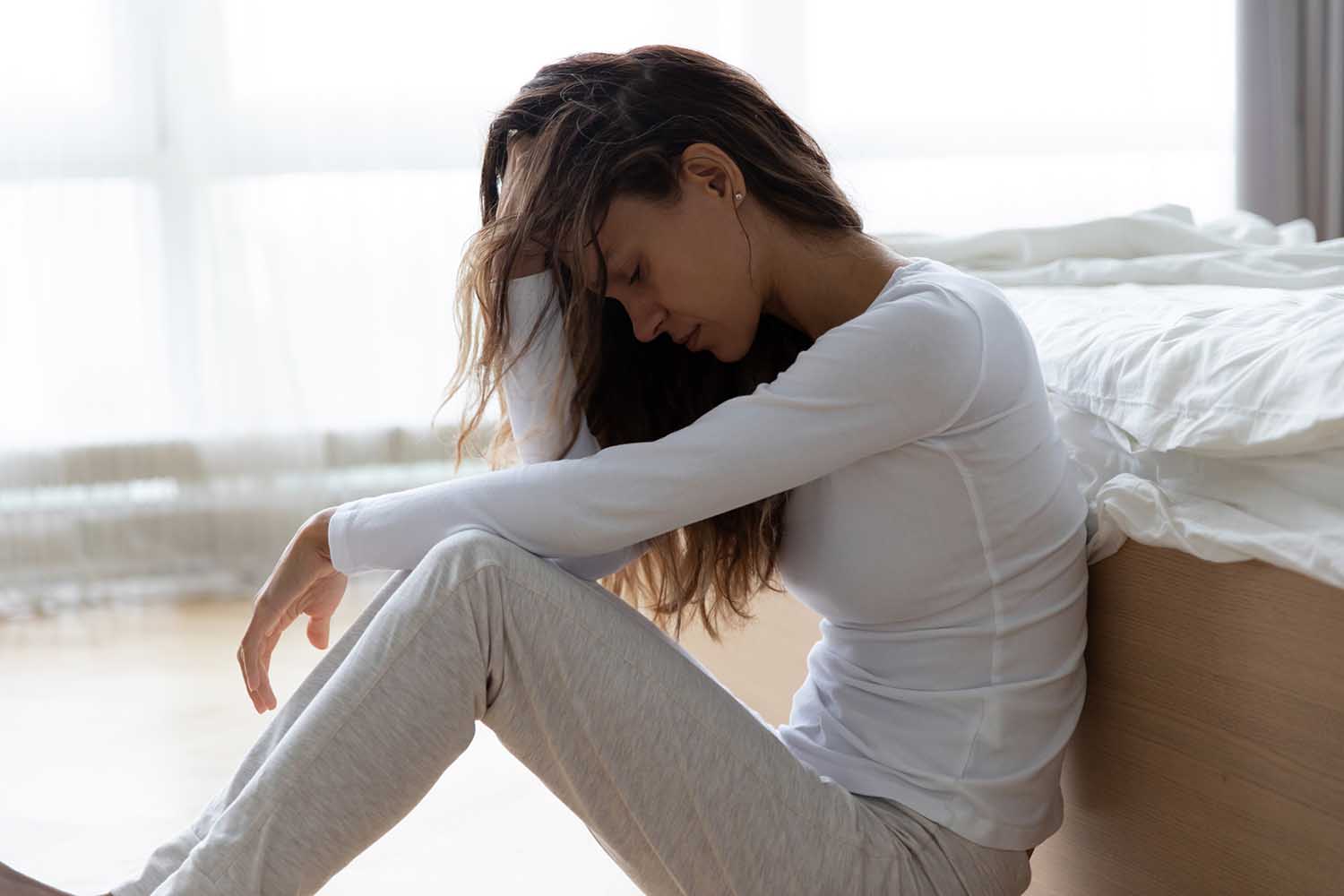Advertisement
Strategies to Ease Anxiety in Under 5 Minutes
Try these 10 simple strategies to help send that panic packing
Fact-Checked
This article has been written and fact-checked by experts in the field.

Acknowledge your anxiety
While it comes on a sliding scale—from the occasional experience to ranging severities of anxiety disorders—we all deal with anxiety in our lives. Your anxiety may stem from any number of causes, including stresses from daily life or past emotional traumas. When things get to be too much, taking just five minutes to try one of these 10 strategies could help calm you down and rise above the anxiety.

When you feel the discomfort that comes with anxiety the easiest path may seem to be trying to ignore it. However, allowing yourself five minutes to lean into that feeling and break down what exactly it is about your situation that is causing you discomfort and worry can be a strong first step to overcoming it. From this standpoint you can work through these feelings to identify the things you can control in the present moment and, hopefully, set aside the things you have no control over.
Write in a journal

Working through your feelings of anxiety can sometimes be easier if you have a place to put them. Using a journal can be an effective way to organize your thoughts and work through what exactly it is that is making you feel anxious. If you need some tips on opening up to the page and keeping a journal, check out this alive article on detoxing your life for some great how-to tips.
Stand up to the to-do list

If your anxiety stems from all the things you have to get done, sometimes the simplest thing you can do to relieve the anxiety is to focus on the present moment by identifying one simple thing you can do now to take control over what is making you anxious—think of it as a small act of bravery. Select one of the to-dos on your list, set a timer for five minutes, and start that task. You may be surprised at how much better you feel after those five minutes are up.
Try the 4-7-8 breathing technique

Sometimes the anxiety can feel like too much to handle and facing things head on is not the answer. Recentering with breathwork has been shown to be an effective way to help ease anxiety. One simple and effective method is the 4-7-8 breathing technique. Here’s how to do it: sitting up straight, place the tip of your tongue behind your upper front teeth. With your mouth closed, breathe in through your nose and count to four. Hold your breath and count to seven. Breathe out through your mouth and count to eight. Repeat these steps three times or until you feel calm.
Give the 3-3-3 rule a try

Another way to refocus your thoughts and bring yourself back into the present moment is the 3-3-3 rule. To practice this anxiety-easing exercise, look around and name three things that you can see, identify three things that you can hear, and then move three parts of your body (for example, rotate your ankles, roll your shoulders back, and wiggle your fingers).
Take a lavender oil supplement

Research has shown that lavender oil supplements are not only effective in easing the symptoms of those suffering from anxiety disorder, but that a daily dose of 80 mg of oral lavender oil offered comparable results to 0.5 mg of lorazepam. Studies have also shown that using lavender aromatherapy can help ease anxiety—a great reason to put a few drops of lavender essential oil in your diffuser next time anxiety makes an appearance.
Drink a cup of green tea

Made from the leaves of the Camellia sinensis plant, green tea contains an amino acid called L-theanine, which has been shown to reduce stress responses in humans to create feelings of calm. L-theanine is available as a supplement so you can reap the calming effects without the caffeine. You can also combine the relaxing effects of both lavender and green tea with this refreshing Green Lavender Mint Tea recipe.
Take a yoga break

Practicing yoga has been shown to benefit those dealing with anxiety, particularly for those that experience panic attacks. If going to a yoga class seems like too much in your state of worry, a quick search on the internet or your favorite yoga app can reveal a treasure trove of 5-minute yoga sequences that can help ease anxiety in the comfort of your own home.
Watch a funny video

Humor has been shown to help reduce feelings of anxiety and boost feelings of wellbeing. Spending five minutes to take a break and watch a funny video or two can reduce your stress response and provide a relaxed feeling to help lift your mood above the anxiety.
Immerse yourself in a song

Turning on a song or playlist that makes you feel happy and relaxes you could be a good way of find a place of calm amid anxious feelings. Research has shown that listening to music can reduce anxiety, as well as benefit blood pressure, heart rate, and quality of sleep. The music that is best to reduce your anxiety depends entirely on your tastes and what works for you, but researchers believe that music with 60 beats per minute is best to encourage brainwaves that result in a relaxed state of mind.





